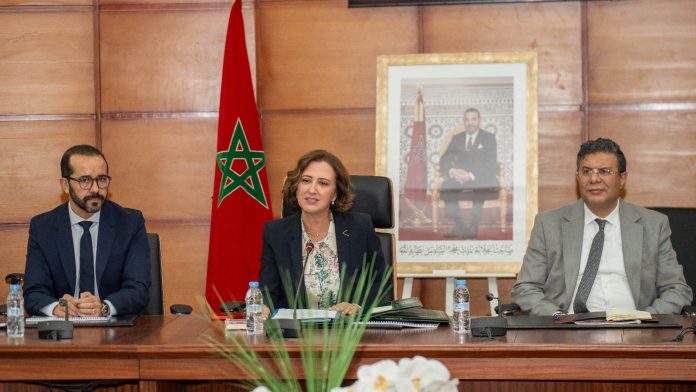In the wake of an exceptional year for Moroccan tourism, Fatim-Zahra Ammor, Minister of Tourism, Handicrafts, and the Social and Solidarity Economy, chaired a crucial meeting with the National Tourism Confederation (CNT). This gathering aimed to evaluate the sector’s recent achievements and outline strategic priorities for the future, particularly with major international events, including the 2030 World Cup, on the horizon.
The minister highlighted the sector’s remarkable growth, underscoring the record-breaking numbers achieved this year. Morocco welcomed 14.6 million visitors by October, with revenues in foreign currency reaching 97 billion dirhams and 24 million overnight stays, representing a 10 percent increase compared to 2023. She attributed these milestones to a close partnership between the government and industry professionals. Employment in tourism also saw a boost, with 827,000 people working in the sector in 2023 and 25,000 direct jobs created compared to the previous year.
Fatim-Zahra Ammor stressed the importance of maintaining this momentum and proposed a detailed action plan centered on three priorities. First, there will be a focus on improving tourism infrastructure, including expanding capacity and upgrading existing establishments to align with the growing demand for air travel. The minister urged hotel operators to take advantage of Cap Hospitality, a time-sensitive program designed to fast-track modernization efforts. Second, enhancing the quality of service across the sector is essential to meet the high standards expected by an increasingly demanding global market. Third, the plan emphasizes investing in the training and development of young professionals to address labor shortages and prepare a skilled workforce for the future.
The minister also highlighted the need for territorial promotion to diversify Morocco’s tourism offerings. This approach seeks to develop new destinations beyond well-established ones, reduce the seasonal nature of tourism, and distribute visitors more evenly across regions. She stated that these efforts would lead to more balanced and sustainable growth for the sector.
In her address, Ammor described this period as a decisive moment for Moroccan tourism, acknowledging the impressive achievements but emphasizing the challenges ahead. She noted that co-hosting the 2030 World Cup would require an even greater level of preparation and mobilization. Under the leadership of King Mohammed VI, she reaffirmed the government’s determination to accelerate the development of this vital sector.
Hamid Bentahar, president of the CNT, expressed pride in the sector’s accomplishments and commended the synergy between public and private stakeholders. He particularly praised the government’s quick response and support, which had been instrumental in achieving these results. However, Bentahar insisted that further efforts were needed to sustain this success, particularly in scaling up training initiatives and modernizing tourism facilities throughout the country.
The meeting also included representatives from various professional associations and regional councils, who supported the proposed priorities while raising specific challenges unique to their areas. These concerns will be addressed in specialized follow-up sessions to ensure that no aspect of the sector’s development is overlooked.
Bentahar emphasized that the collective effort driving recent progress must now shift toward an equally collective acceleration. He reiterated the CNT’s commitment to working closely with the Ministry of Tourism to enhance Morocco’s appeal and competitiveness on the global stage.
The meeting was attended by key figures, including Mohammed Msellek, Secretary General of the Ministry of Tourism, and Achraf Faida, Director General of the Moroccan National Tourism Office, along with heads of various professional federations and regional tourism councils.
With a strong foundation of achievements and a clear vision for the future, Moroccan tourism is poised to continue its upward trajectory. As the nation prepares for landmark events like the 2030 World Cup, the focus remains on building a dynamic and resilient sector capable of meeting global expectations while delivering sustainable growth at home.





